
Modern Talking was a German pop duo consisting of arranger, songwriter and producer Dieter Bohlen and singer Thomas Anders. They have been referred to as Germany's most successful pop duo, and have had a number of hit singles, reaching the top five in many countries. Their most popular singles are "You're My Heart, You're My Soul", "You Can Win If You Want", "Cheri, Cheri Lady", "Brother Louie", "Atlantis Is Calling " and "Geronimo's Cadillac".

Lisa Jane Stansfield is an English singer, songwriter, and actress. Her career began in 1980 when she won the singing competition Search for a Star. After appearances in various television shows and releasing her first singles, Stansfield, along with Ian Devaney and Andy Morris, formed Blue Zone in 1983. The band released several singles and one album, but after the success of Coldcut's "People Hold On" in 1989, on which Stansfield was featured, the focus was placed on her solo career.
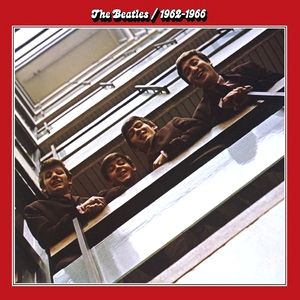
1962–1966, also known as the Red Album, is a compilation album of hit songs by the English rock band the Beatles, spanning the years indicated in the title. Released with its counterpart 1967–1970 in 1973, the double LP peaked at number 3 in the United Kingdom. In the United States, it topped the Cash Box albums chart and peaked at number 3 on the Billboard Top LPs & Tape chart while 1967–1970 reached the top spot. The album was re-released in September 1993 on compact disc, charting at number 3 in the UK.

Right Said Fred are an English pop band formed by brothers Fred and Richard Fairbrass in 1989. They are best known for the hit 1991 song "I'm Too Sexy".

Blue are a British boy band consisting of members Simon Webbe, Duncan James, Antony Costa and Lee Ryan. The group formed in 2000 and released three studio albums before announcing a hiatus in late 2004. In January 2011, the group reformed and represented the United Kingdom at the 2011 Eurovision Song Contest in Düsseldorf with the song "I Can", coming in 11th place with 100 points. In 2013, it was confirmed that the group would be joining The Big Reunion, in which six groups from the past reform for a one-off gig. On 27 March 2013, the group announced they would embark on their first headlining tour later on in the year, their first tour in nearly ten years.

"Can't Help Falling in Love" is a song recorded by American singer and actor Elvis Presley for his fourth soundtrack album, Blue Hawaii (1961). It was written by Hugo Peretti, Luigi Creatore, and George David Weiss and published by Gladys Music, Inc. The melody is based on "Plaisir d'amour", a popular French love song composed in 1784 by Jean-Paul-Égide Martini. The song was initially written from the perspective of a woman as "Can't Help Falling in Love with Him", which explains the first and third line ending on "in" and "sin" rather than words rhyming with "you".

"Venus" is a song by Dutch rock band Shocking Blue, released as a single in the Netherlands in the summer of 1969. Written by Robbie van Leeuwen, the song topped the charts in nine countries.

"I Will Always Love You" is a song written and originally recorded in 1973 by American singer-songwriter Dolly Parton. Written as a farewell to her business partner and mentor Porter Wagoner, expressing Parton's decision to pursue a solo career, the country single was released in 1974. The song was a commercial success for Parton, twice reaching the top spot of the US Billboard Hot Country Songs chart: first in June 1974, then again in October 1982, with a re-recording for The Best Little Whorehouse in Texas soundtrack.

"End of the Road" is a song by American R&B group Boyz II Men for the Boomerang soundtrack. It was released in June 1992 by LaFace, Arista and Motown, and is written by Babyface, Antonio L.A. Reid and Daryl Simmons. The song achieved domestic and international success. In the United States, it spent a then record breaking 13 weeks at number one on the US Billboard Hot 100, a record broken later in the year by Whitney Houston's 14-week number one hit "I Will Always Love You"; Boyz II Men would later match Houston's record with "I'll Make Love to You", which spent 14 weeks at number one in 1994, and then reclaim the record with "One Sweet Day", which spent 16 weeks at number one from 1995 to 1996.
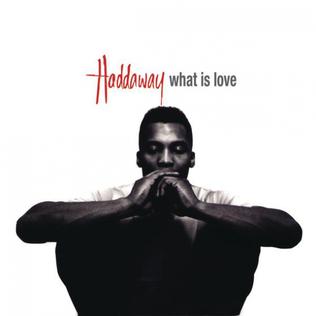
"What Is Love" is a song by Trinidadian-German singer Haddaway, released as his debut single from his debut album, The Album (1993). The song, both written and produced by Dee Dee Halligan and Karin Hartmann-Eisenblätter, was released by Coconut Records in January 1993. It was a hit across Europe, becoming a number-one single in at least 13 countries and reaching number two in Germany, Sweden and the United Kingdom. Outside Europe, the single peaked at number 11 in the United States, number 12 in Australia, number 17 in Canada, and number 48 in New Zealand.
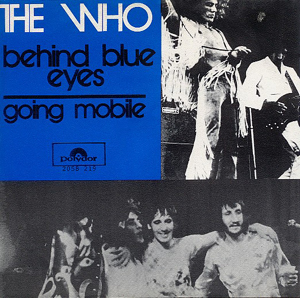
"Behind Blue Eyes" is a song by English rock band the Who. It is the second single from the band's fifth album, Who's Next (1971), and was originally written by Pete Townshend for his Lifehouse project. The song is one of the Who's best-known recordings and has been covered by many artists, including Limp Bizkit. The single entered the US Billboard Charts on 6 November 1971, reaching No. 34.
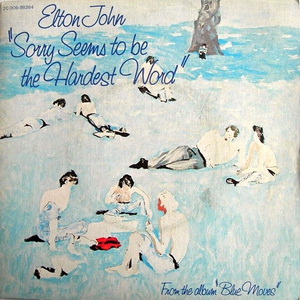
"Sorry Seems to Be the Hardest Word" is a song written by English musician Elton John and songwriter Bernie Taupin. It was recorded by Elton John and released in 1976, both as a single and as part of the Blue Moves album. It was John's second single released by The Rocket Record Company. The song is a mournful ballad about a romantic relationship which is falling apart.

"Go West" is a song by American disco group Village People, released in June 1979 by Casablanca Records as the second single from their fourth studio album of the same name (1979). The song was written by Jacques Morali, Henri Belolo and lead singer Victor Willis, while Morali produced it. It was successful in the disco scene during the late 1970s and a top-20 hit in Belgium, Ireland and the UK. "Go West" found further success when it was covered in 1993 by English synth-pop duo Pet Shop Boys.
"Don't Leave Me This Way" is a song written by Kenneth Gamble, Leon Huff and Cary Gilbert. It was originally released in 1975 by Harold Melvin & the Blue Notes featuring Teddy Pendergrass, an act signed to Gamble & Huff's Philadelphia International label. "Don't Leave Me This Way" was subsequently covered by American singer Thelma Houston in 1976 and British duo the Communards in 1986, with both versions achieving commercial success.
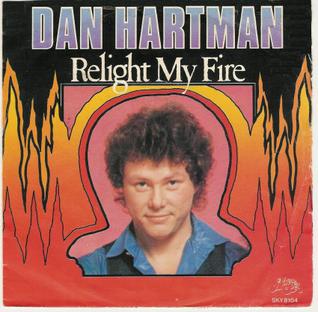
"Relight My Fire" is a disco song written and released by American musician, singer, songwriter, and record producer Dan Hartman as the title track from his 1979 album of the same name. It was also performed by Costa Anadiotis' band Café Society in 1984 and British boy band Take That in 1993, five months before Hartman died.

"Der Kommissar" is a song recorded by Austrian artist Falco in 1981. The song was written by Robert Ponger and Falco. It reached the top of the charts in many European countries. The cover version as an English translation by the group After the Fire in 1982 had greater success in other countries.

"The Love I Lost" is a song by American R&B group Harold Melvin & the Blue Notes. Group member Teddy Pendergrass sang lead vocals. Originally written as a ballad by Philly soul songwriters Kenny Gamble and Leon Huff, the song was transformed into a funk song and features drummer Earl Young. It was released from the Black & Blue album in late 1973 and sold more than a million copies. In the 21st century, the track has been the subject of extended re-edits by notable remixers Tom Moulton, Theo Parrish, and Dimitri From Paris.

"Blue Eyes Blue" is a pop song written by American songwriter Diane Warren. The tune was written for the 1999 soundtrack of Runaway Bride. The British rock musician Eric Clapton recorded the song for the soundtrack and released his performance of the song as a single on July 20, 1999, for Reprise Records.
"Lucifer" is a song by Blue System. It is the first song on their 1991 fifth studio album, Seeds of Heaven, and was released as its lead single.
"48 Hours" is a song by Blue System. It is the sixth track on their 1990 fourth studio album, Obsession. It was released as a single around six months before the album came out.

















